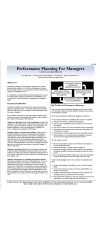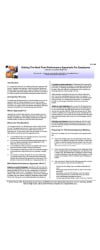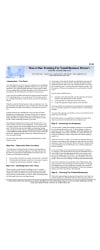Managers, supervisors, executives or any others with formal power and title within an organization can reap huge benefits from cultivating and developing existing informal leaders in their work units. Or, informal leaders can work against the formal leaders in the organization.
When informal leaders are working towards achieving the same vision and goals as the formal leaders (and the organization itself), they can take a tremendous burden from the backs of managers and formal leaders. Some of the leadership functions, and many management functions can actually be carried out informally by those without actual authority. This frees those with formal management responsibility to focus on what they, themselves can uniquely do.
Informal leaders have some capabilities that more formal leaders do not, simply because they do NOT hold a position of designated authority. They can say things, for example, to other team members that could not be said by a person in an official management role, and their ability to influence is slightly different, since informal leaders are often perceived differently than formal leaders.
Think about a team — let’s say a sports team, where informal leaders are often talked about and lauded. Imagine (and you might want to think about George Steinbrenner, owner of the New York Yankees Baseball Team) that a senior person (owner) goes down to the locker room and rudely and aggressively criticizes specific players and the team in general for not playing well, and not trying, and threatens the team members. How might that be perceived by the players? By the media? While we can’t predict whether the rant would be successful in terms of results, we can predict that the players’ reactions may range from positive to negative depending on their history with the owner, AND that their reactions would almost certainly be different than if a respected informal leader did a similar thing in the clubhouse.
The informal leader who might take on this task is respected, perhaps trusted, based on his performance and relationships with the other players, while the owner is more likely to be in a leadership role due to his formal authority and power, and ability to instill fear in the players (note this is a generalization, since not all formal leaders are respected, or use fear to motivate).
In any event, the informal leader influences in different ways, and so is perceived differently. Of course, this influence doesn’t only occur when the informal leader is criticizing or “kicking butt”, but also happens as a result of other players seeing the commitment, level of intensity, integrity, and performance levels of an informal leader. For many “players” (and this applies within sports and without), who is more inspiring; the rich powerful owner of the team who has never played the sport, or the talented, respected, super competent and hard working teammate? Or even the less talented teammate who gives 110 percent? In many cases the informal peer leader holds more influence.
Here are a few bullet points to help you understand the power informal leaders have in any organization.
- Not all informal leaders have intentionally gone out of their ways to become informal leaders. Sometiimes they “emerge” simply because others in the organization have great respect for them.
- While informal leaders can be important or even essential to the success of an organization, they can also be huge impediments if they start pulling in directions that are in opposition to the direction the formal leaders value.
- For the reason above, formal leaders may want to take steps to develop their informal leaders more completely, and keep lines of communication open with them.
- While it may seem that promoting informal leaders to formal positions of power makes sense, it’s also the case that some informal leaders may become ineffective if given formal authority (while some may be very successful). This is because formal authority may alter the relationships of the new formal leader with his or her formal peers.
- Care needs to be taken when trying to harness the power of informal leadership. An informal leader’s power and influence often derives from the perception that he or she has integrity, and stands up for what he or she believes, because their behavior has demonstrated that. When formal leaders try to co-opt, or manipulate informal leaders, the risk is that the informal leaders will rebel, or “stand against” the formal leader. Attempting to bribe, coerce or otherwise pressure an informal leader to toe the line may end up backfiring.





